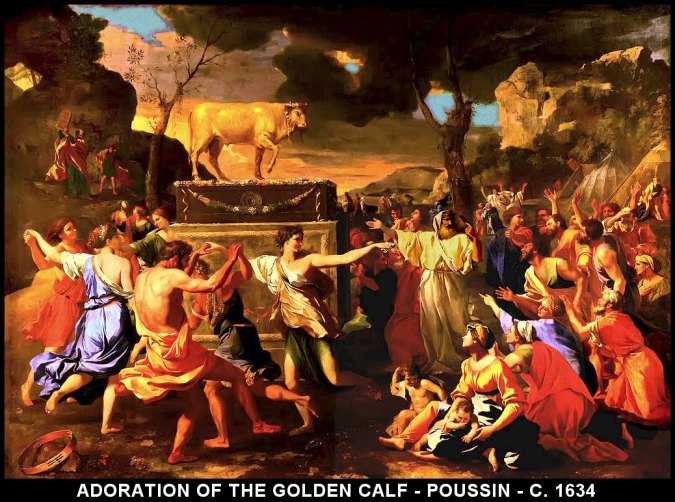
Is the Exodus a myth?
Millions of people believe that the Exodus we know of from Hebrew school or Sunday school and movies really happened in history. They say God led his chosen people, Israel, out of slavery in Egypt with astounding miraculous power to Canaan, where the Israelite swords reclaimed the land God promised them. Of course, many of us no longer believe in miracles or God, or at least not a god that picks favorites among the children of Earth. Stories like this sound like the fantasy world of Greek mythology. So is the Exodus a myth too? If it is, what were the real origins of the Israelite nation and Judaism? Does the Exodus have any grounding in reality at all? What does this mean for biblical religions today?
To answer these questions we first have to isolate what exactly we are talking about. What is our source for the Exodus story? Cecil B. DeMille and Ridley Scott didn’t invent it. The Exodus story comes to us from the sacred writings that make up the Old Testament, in particular the books of Exodus through Deuteronomy. The individual books that make up the Old Testament reached their final form sometime after the return of Jews from Babylon and before the Roman occupation of the land of Israel. Our earliest complete copies are found in the Dead Sea Scrolls dated to around the first centuries BC /AD. The particular books that make up the Old Testament weren’t agreed upon on until several generations after beginning of Christianity!
Outside of those dedicated to defending religious dogmas, the spectacular Exodus story found in the Bible is considered by archeologists and historians to be impossible. A lot of them have suggested that there is a kernel of truth to the Exodus, but what that kernel might be is a matter of considerable debate. While most believe that there may be some historical reality behind the legend, many maintain it is only a myth and even the believers concede that we can’t know what happened, and the question no longer grabs the attention it once did with scholars.

From the film, The Ten Commandments
I am of the opinion that there is a likely historical event in behind the Exodus. I’m documenting my own theory for the date of the Exodus, and what that event was, in my current research. By way as an introduction, I want to explain some of the background to my research.
First, one of the most important keys to understanding the historical record of the Exodus is the understanding that the story is composed of various separate sources. Each tells its own story, and the composite story is ahistorical because it only comes into being with the combination of the sources. Those sources were written at different times and places by people with a diversity of views.
While Christians order the Bible from Genesis to the Minor Prophets and Jews from Genesis to the Writings, the actual chronology of the times when the books and their sources were written is different. The earliest parts of the Bible’s stories that were composed are a number of poems dated by most scholars to around the 12th-11th centuries.
The bible itself cites two works, the wars of Jehovah and the Book of the Righteous, which are now lost to us in their entirety, but seemed to have contained ancient songs celebrating God and Israel.
The next sources are called by scholars J and E, and they make up large chunks of the books from Exodus to Numbers. The dates of these two are hard to determine, but I think J can be confidently dated to between approximately 850-800 B.C. E is harder to date and may be later or earlier. It was probably combined with J shortly after the fall of Israel.
Following them is likely some of the Minor Prophets, Amos, Hosea, and Isaiah. These books are supposedly records of the lives and prophecies of prophets, written down by disciples either during their lives or shortly afterward. The books, as we have them, were sometimes composed decades later and contain a lot of later material attributed to the old prophets, but there is a certain amount of material believed to date back to the prophets themselves, who were active between approximately 800 and 700 B.C.
The other sources, D and P, are later still. D was certainly written during the reign of Josiah, while P may be from anywhere between the time of king Hezekiah of Judah to the period under the Persians after the Jews were freed from Babylon. D is the book of Deuteronomy while P makes up most of the Bible from Genesis to Numbers that isn’t J or E.
Other biblical books were written even later, but I won’t dwell on these since they are composed too late to have a real historical perspective or are derived from the combinations of these earlier sources.
When you separate the various strands of sources, arrange them in time and read them separately you find the story changes, things that we associate with the Exodus are not found in all versions, nor are some elements and themes found in the earliest sources. Perspectives on the Exodus change as writers are influenced by more independent sources and combined text. Its story is shaped by the circumstances of the history when it was written. By examining the separate elements of the Exodus story in regard to its age, biases, reliability and so forth, we can trace the story of the Exodus back through time to its original form and then use that for comparison to the historical and archeological data to answer the question: what was the Exodus? In future posts, I will discuss how the different sources talked about the Exodus at different times.

Bibliography: If you want to look up the books where I get my information from, here you go…
The Harper Collins Study Bible NRSV 2006
The Oxford History of the Biblical World 1998
The Old Testament: A historical and Literary Introduction to the Hebrew Scriptures 2006


